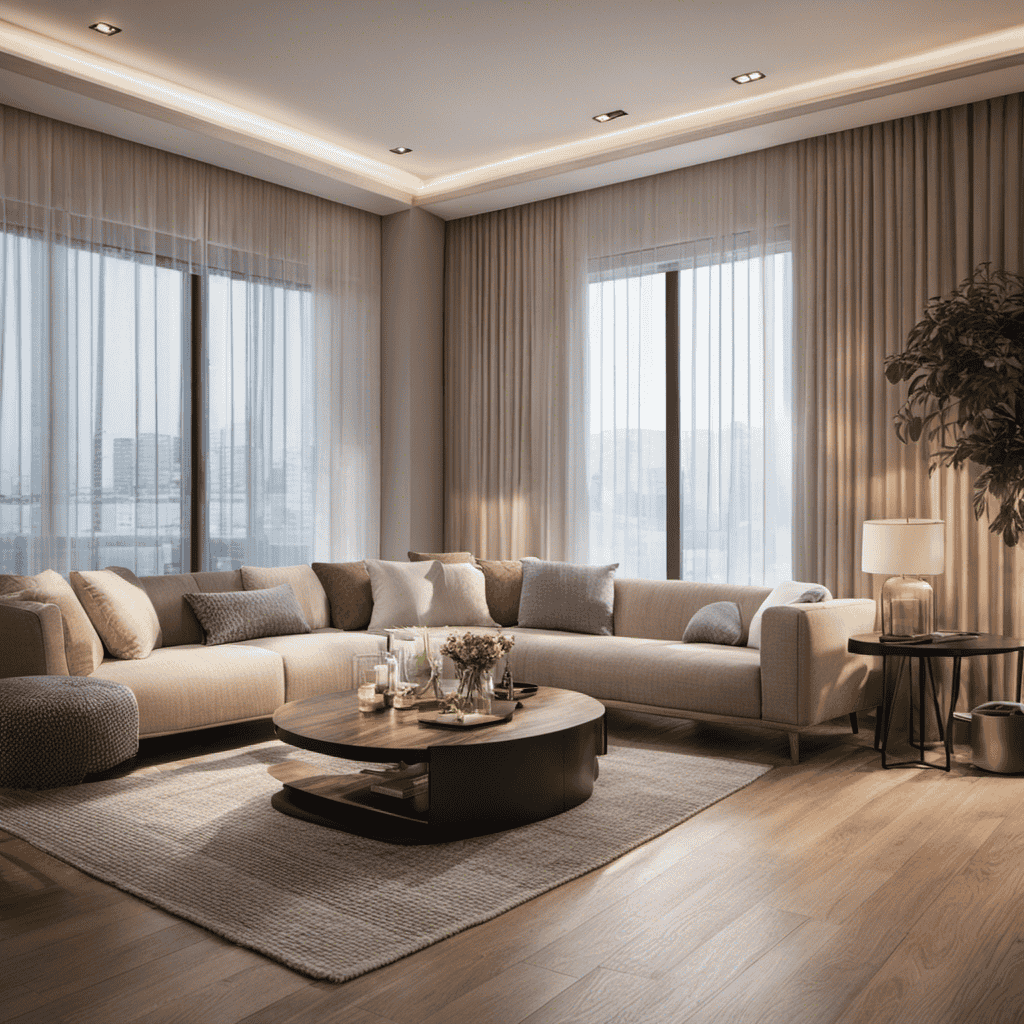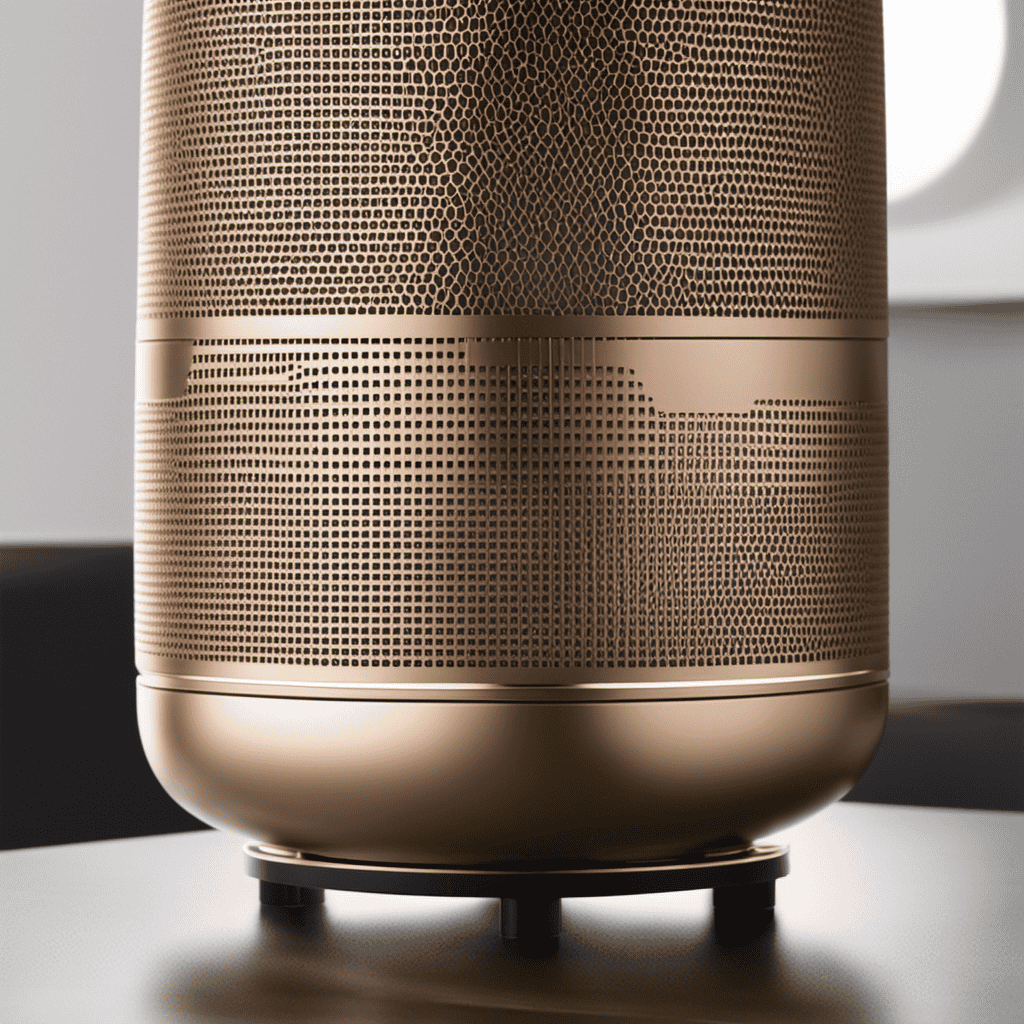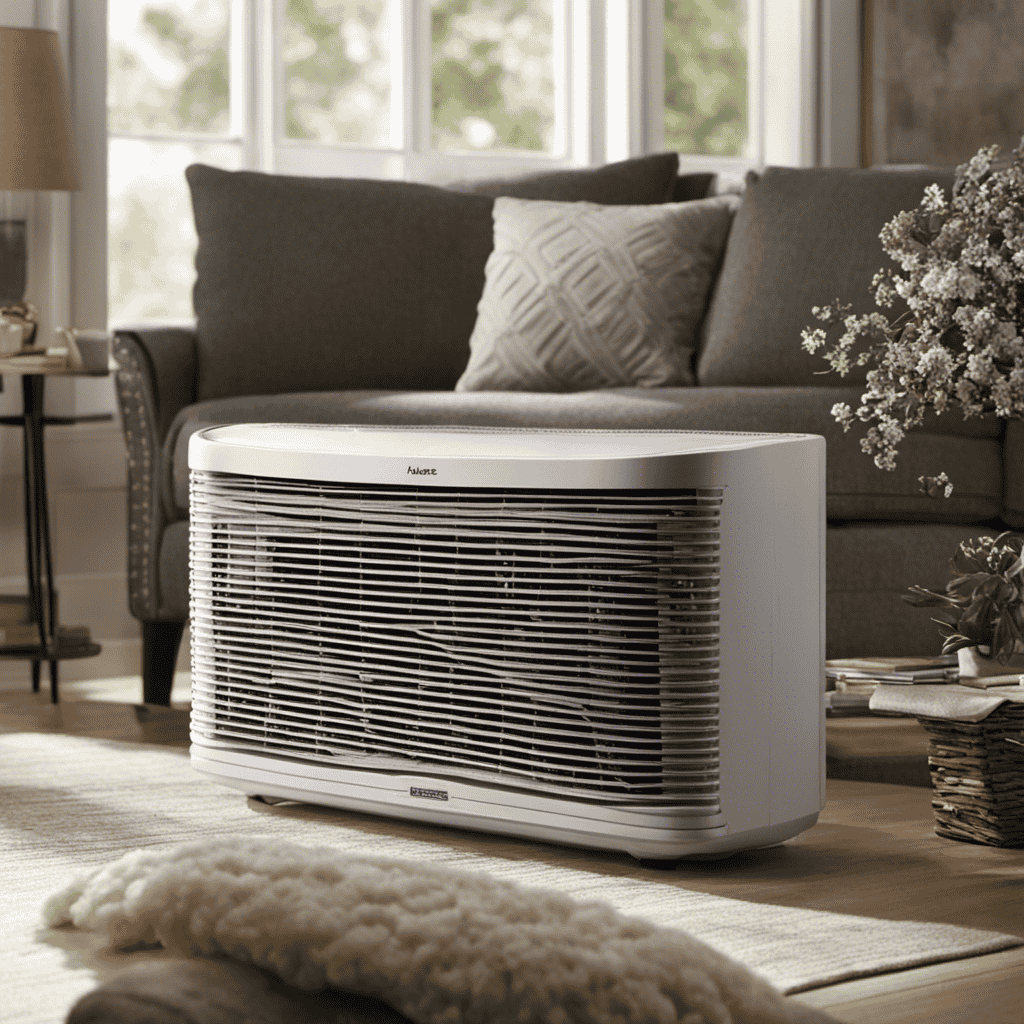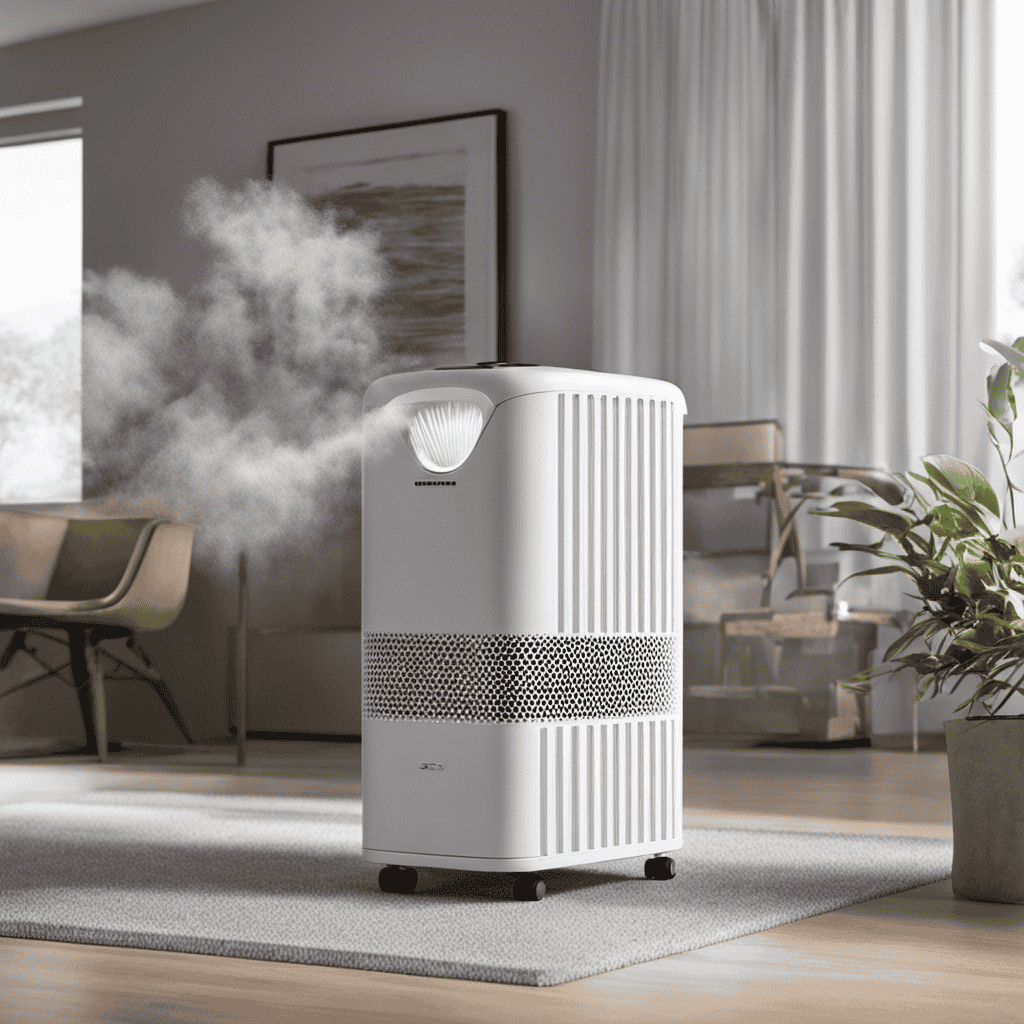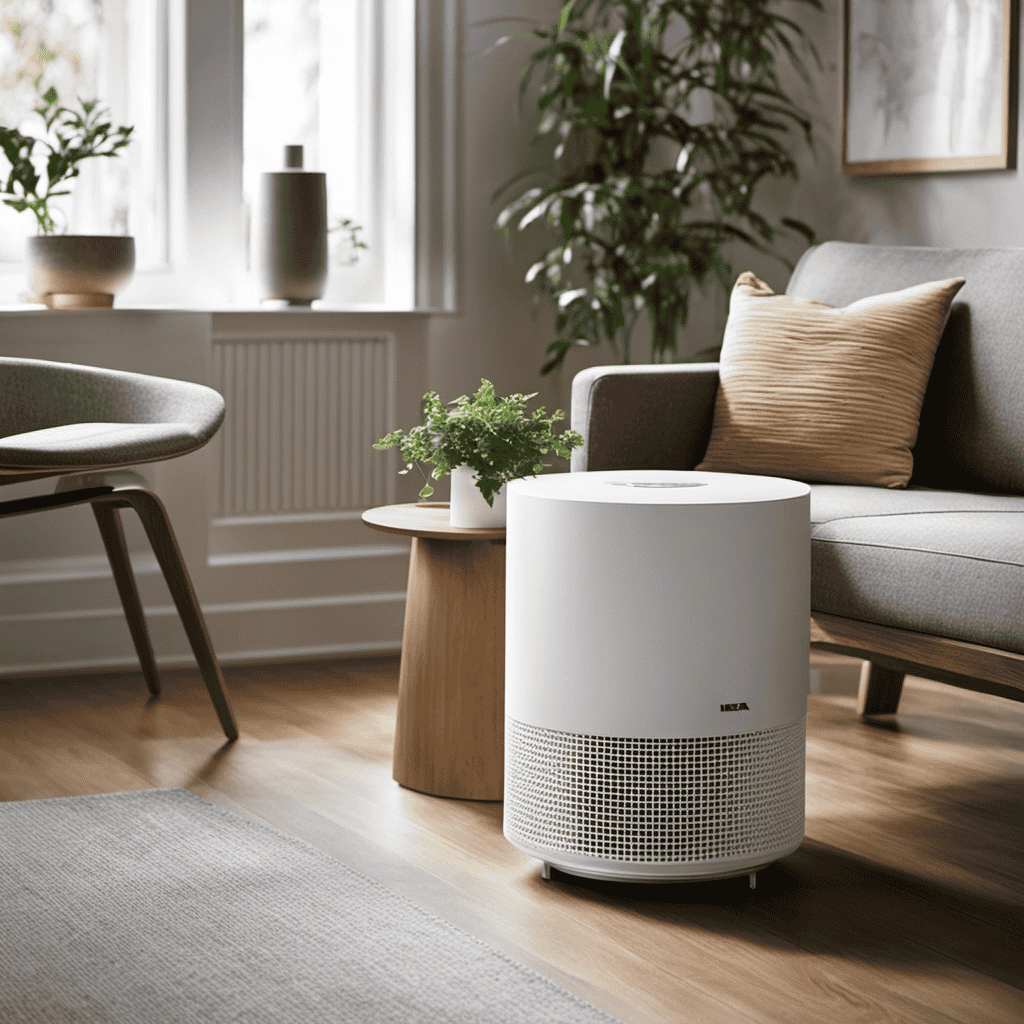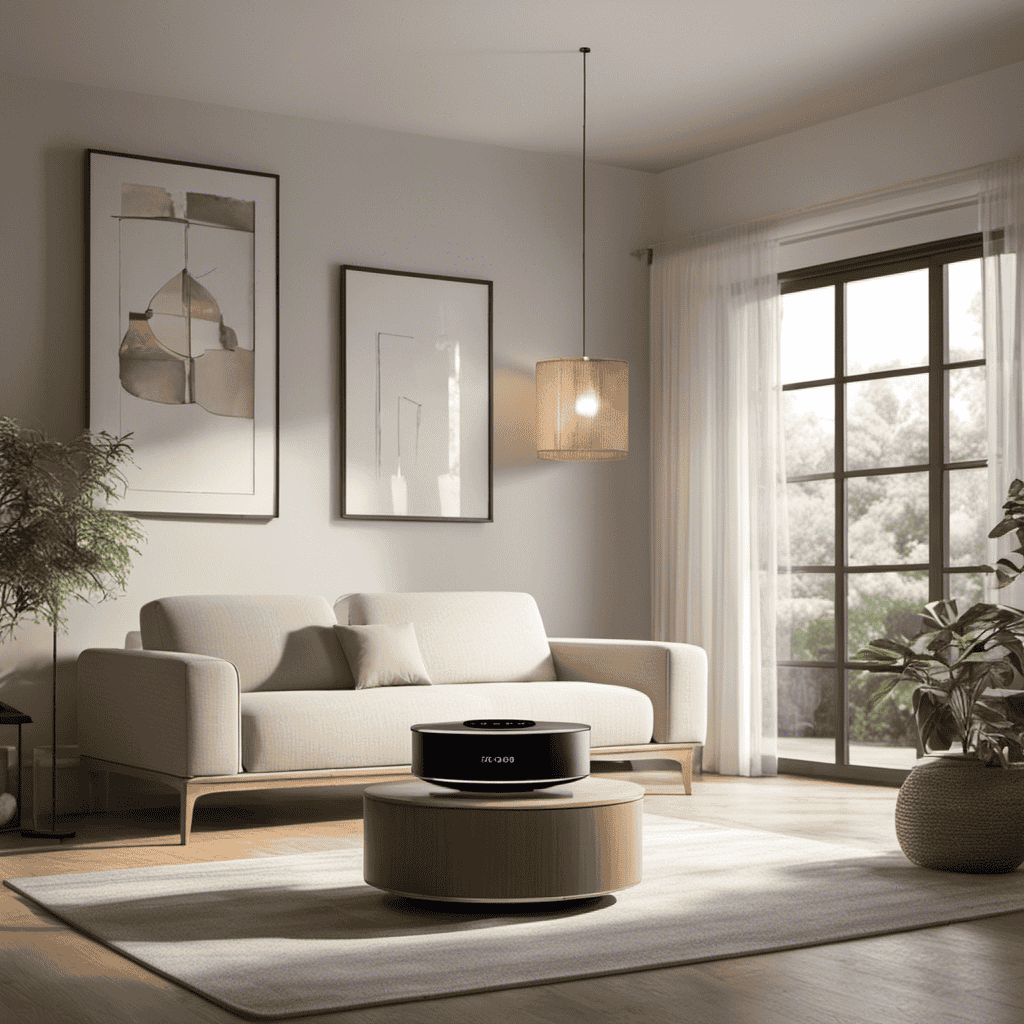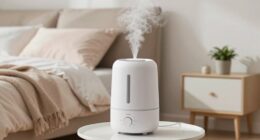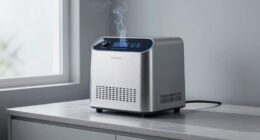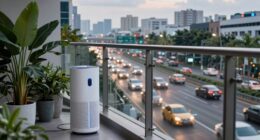As someone who is concerned about maintaining clean indoor air quality, I frequently question the frequency at which I should run my air purifier. In this article, we will explore the factors that affect air purifier usage and the daily hours of operation that are recommended.
By understanding air quality levels and usage frequency, we can make informed decisions about our air purifier usage. Additionally, we will explore the benefits of running an air purifier continuously and how to adjust usage based on room size and occupancy.
Key Takeaways
- Factors to consider in determining air purifier usage include the size of the room, level of air pollution, presence of allergens, personal preferences, and experimentation with different usage durations.
- Recommended daily hours of air purifier operation depend on room size, air quality, personal preferences, effects of prolonged use on energy consumption and device performance, and following manufacturer’s guidelines.
- Understanding air quality levels and usage frequency involves measuring air quality, considering factors like pollen count and VOCs, monitoring pollution levels, minimizing unnecessary energy consumption, and using the purifier during high pollution levels or specific activities.
- Running an air purifier continuously offers benefits such as improved indoor air quality, reduction of harmful particles, allergy relief, elimination of odors, prolonged lifespan and reduced maintenance needs, and continuous filtration for constant removal of pollutants and allergens.
- Adjusting air purifier usage based on room size and occupancy involves maximizing efficiency, considering specific needs of each room, adjusting fan speed or running times, and optimizing effectiveness in providing clean and fresh air.
Factors to Consider in Determining Air Purifier Usage
When determining how often to use your air purifier, there are several factors you should consider.
The first factor is the size of the room or area you want to purify. Larger spaces may require longer usage or a more powerful purifier to effectively filter the air.
Another important factor is the level of air pollution in your environment. If you live in a highly polluted area or have respiratory conditions, you may need to run your air purifier more frequently.
Additionally, consider the presence of allergens or specific pollutants in your home, such as pet dander or cigarette smoke.
Lastly, personal preferences and comfort should also be taken into account. Experiment with different usage durations and observe the air quality to find the optimal usage that suits your needs.
Recommended Daily Hours of Air Purifier Operation
To determine how long you should run your air purifier each day, take into account the size of your space, the air quality, and your personal preferences. Here are four key factors to consider when determining the ideal air purifier runtime:
-
Room Size: Larger spaces may require longer operating times to effectively clean the air. Smaller rooms may need less time for the air purifier to circulate and purify the air.
-
Air Quality: If you live in an area with poor air quality or have specific concerns such as allergies or asthma, running the air purifier for longer periods can help maintain cleaner air throughout the day.
-
Personal Preferences: Some individuals prefer to have the air purifier running continuously for maximum air purification, while others may only want it on during specific times, such as when they are sleeping or when they are at home.
-
Effects of Prolonged Use: It’s important to consider the potential effects of prolonged air purifier use, such as increased energy consumption and potential wear and tear on the device. It’s recommended to follow the manufacturer’s guidelines and give the air purifier breaks to ensure optimal performance and longevity.
Understanding Air Quality Levels and Usage Frequency
Understanding the different levels of air quality and how frequently I use the device can help me determine the best runtime for my air purifier.
Air quality measurements play a crucial role in assessing the need for air purification. Factors such as pollen count, particulate matter, and volatile organic compounds (VOCs) can impact indoor air quality. Monitoring these levels can help determine when to turn on the air purifier.
Additionally, considering usage frequency is important as it directly affects energy consumption. Running the air purifier continuously may be unnecessary if the air quality is already within acceptable limits. It is advisable to use the air purifier when pollution levels are high or during specific times, such as when cooking or cleaning.
Benefits of Running an Air Purifier Continuously
Running your air purifier continuously can provide continuous filtration of indoor air, ensuring that pollutants and allergens are constantly being removed. Here are four long-term benefits of operating your air purifier continuously:
-
Improved Indoor Air Quality: Continuous operation of an air purifier helps maintain clean and fresh air inside your home, reducing the presence of harmful particles that can trigger allergies and respiratory issues.
-
Allergen Control: By running your air purifier continuously, you can effectively remove allergens such as dust mites, pollen, and pet dander from the air. This can significantly reduce allergy symptoms, providing relief for those who suffer from allergies.
-
Odor Elimination: Continuous operation of an air purifier helps eliminate unwanted odors, such as from cooking, pets, or cigarette smoke. It can leave your home smelling fresh and clean.
-
Longevity of Air Purifier: Consistent operation allows the air purifier to work efficiently and effectively, prolonging its lifespan and reducing the need for frequent maintenance or replacement.
Adjusting Air Purifier Usage Based on Room Size and Occupancy
Adjusting the usage of my air purifier based on the size and occupancy of the room can help optimize its effectiveness in providing clean and fresh air.
To maximize efficiency and optimize performance, it is important to consider the specific needs of each room.
For smaller rooms with low occupancy, such as a bedroom or office, running the air purifier on a lower fan speed or for shorter periods of time may be sufficient.
On the other hand, larger rooms or spaces with higher occupancy, like the living room or kitchen, may require higher fan speeds or longer running times to effectively clean the air.
It is also worth noting that factors such as air quality, allergies, and pets can influence the frequency and duration of air purifier usage.
Is There a Recommended Frequency for Turning on an Air Purifier?
The recommended air purifier usage frequency varies depending on factors like allergies, pets, and air quality. For general use, running the air purifier continuously or at least a few hours every day can help maintain clean indoor air. It’s best to follow the manufacturer’s guidelines for optimal performance.
Frequently Asked Questions
Can an Air Purifier Remove All Types of Pollutants From the Air?
An air purifier can effectively remove many types of pollutants from the air, including indoor odors, airborne bacteria, and viruses. It is a practical and research-based solution for improving indoor air quality.
Can an Air Purifier Help With Allergies and Asthma Symptoms?
Air purifiers can help reduce the need for medication in allergy and asthma sufferers. While they can’t completely eliminate all allergens and irritants from the air, they can significantly improve air quality.
Is It Safe to Run an Air Purifier All Night While Sleeping?
Using an air purifier all night while sleeping can be beneficial, as it helps remove indoor pollutants and allergens. However, it’s important to follow manufacturer’s recommendations and ensure proper ventilation to avoid potential health risks.
Do Air Purifiers Consume a Lot of Electricity When Running Continuously?
When considering the cost effectiveness of an air purifier, it’s important to understand its energy consumption. Running an air purifier continuously can lead to higher electricity usage, so it’s wise to find a balance that suits your needs and budget.
How Often Should the Filters in an Air Purifier Be Replaced?
I clean my air purifier filters every 3-6 months, but it depends on how frequently I use it and the air quality in my home. Signs that filters need replacing include reduced airflow and a noticeable decrease in air quality.
Conclusion
In conclusion, it’s crucial to have your air purifier running 24/7 to ensure a pristine and heavenly atmosphere in your home. By doing so, you’ll experience a level of air quality that is out of this world.
Trust me, the benefits of continuous air purifier usage are simply mind-blowing. Whether you have a small room or a spacious living area, remember to keep that purifier humming all day long.
Your lungs will thank you, and you’ll feel like you’re living in a paradise of fresh air.
